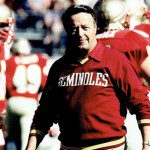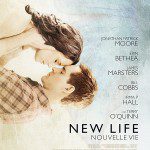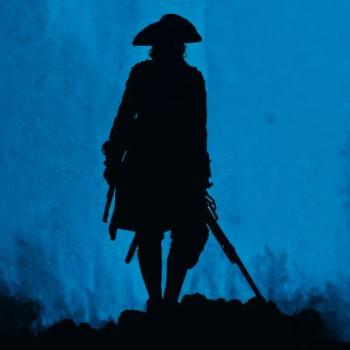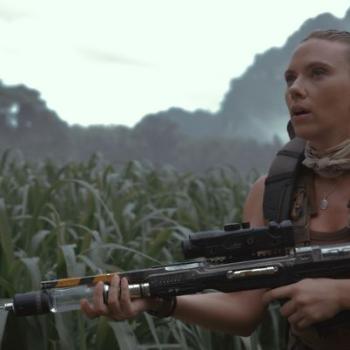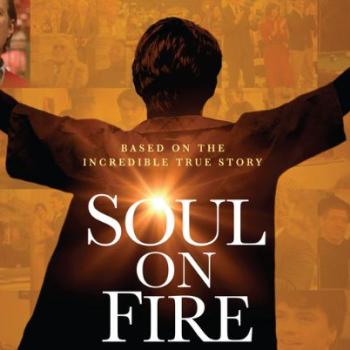Hacksaw Ridge, releasing Nov. 4, is the true story of Medal of Honor recipient Desmond T. Doss, a medic and a conscientious objector during World War II. Because of his convictions and Christian faith, Doss refused to bear arms and yet went into battle, saving more than 75 lives during the Battle of Okinawa.
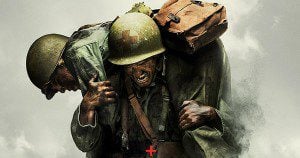
Directed by Mel Gibson, the film is generating a tremendous amount of buzz in both mainstream and faith-based circles for its inspiring story, and performances by Andrew Garfield, Sam Worthington, and Vince Vaughn. Many have speculated it as an early Oscar favorite and it leads the Australian Academy Awards with 13 nominations.
Producer Terry Benedict, who was a friend to Doss and also produced the 2004 documentary, The Conscientious Objector, visited Chattanooga, Tennessee, an area where Doss settled after the war, to screen the film for other Medal of Honor recipients. In this exclusive interview, he explains how the film accurately captures the essence of the wartime hero and how Doss lived out his Christian beliefs.
Your involvement with the film was as a result of your 2004 documentary The Conscientious Objector, right?
That was the primary frame of reference. The writers, Andrew Knight and Robert Schenkkan, I had given all the resource material, so that they had everything at their beck and call.
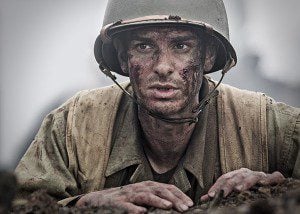
How did your friendship with Desmond Doss impact you personally?
That goes back a long time to the point I was 10 years old and I read a book called The Unlikeliest Hero. I grew up without a television. It was a choice by my parents, not because they couldn’t afford one. So I read voraciously as a kid. Of course, boys are attracted to war stories. I read the World War II canon, Thirty Seconds Over Tokyo, The Audie Murphy Story, Pearl Harbor and then I came across The Unlikeliest Hero, which was Desmond’s story. I was just enamored, amazed. Here’s a guy, all he wanted to do was be a combat medic, didn’t believe in killing, didn’t want to carry a gun. Got abused and harassed by his fellow soldiers and then went into the battles and started saving them and then culminated up on Hacksaw Ridge in Okinawa and saved 75 of them under fire, letting them down 100 foot cliff. My little brain trying to do the math on all of that and wrap around how that was even possible. My imagination was running wild and then I met Desmond a couple of years later at a church summer camp and got to meet him. That was an amazing experience. He was just a very humble man, unassuming. My fondness, love and honor just kind of grew about him. Well into my film career in the last part of the 90s, got reconnected with him and went to a couple of medal of honor reunions and saw how those guys treated him with such honor and respect. We started talking to him about doing the need to do a documentary about him and whoever else was still alive. He had grown weary actually of producers coming at him from Hollywood since 1945, so pushing 60 years. He had been working with his local church conference and they formed a group of guys called the Desmond Doss Council. Once Desmond agreed, he let me work with him. I worked with them, and that started me off on the journey of doing the documentary.
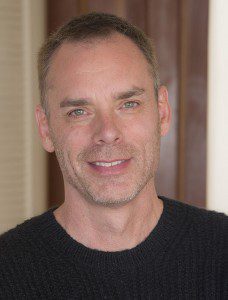
Was he a speaker at the camp or staff?
He was just a visitor. The church kind of had him do crisscross the country and do some public speaking. Primarily he was passionate about sharing his story with youth, to inspire them to have a spiritual relationship with God and to walk a faith walk and to live the life with integrity and have a sound moral compass. He made a huge impact on thousands and thousands of kids, he no doubt affected their lives.
How do you feel like the movie honors him? Does it keep his story authentic? Were you consulted about that and keep nudging it toward accuracy?
I didn’t have to do that. When I met Bill Mechanic in 02 or 03, he was the former president of 20th Century Fox, he oversaw Titanic, Castaway, during the 90s. He had become gone beyond to become an independent producer. I had been talking to other producers and production companies while I was finishing up the documentary. I really felt like he got the magnitude of the story and I had promised Desmond that I would do everything I could to protect the essence of his character. Of course, I shared my passion and concerns for how this film should come together. Bill understood and agreed with all of that and became primary producer and champion through the development process, which was ten plus years of a rollercoaster ride until couple of years ago when Mel came on board. Mel being a believer and a man of faith, he too understood the importance of Desmond’s story and also that it was essential to keep the core and purity of Desmond’s story, because if you take that out, you really just have an ordinary war story. We had many conversations where he was concerned his character may be impugned and He wanted God to have all the honor and glory, I shared that through the development process. But I didn’t have to fight for it, because the guys that were coming on board bought into all of that. Plus Mel saw the documentary and it lays it out there and it really lays it out there in very detailed ways how this whole thing happened. It’s a very natural fit. I brought Andrew down to Chattanooga because he wanted to take ownership of Desmond’s character, crawling under Desmond’s skin and really start unpeeling the layers of Desmond. So I took him on a journey that led him in to experience through his five senses everything Desmond had done here in Chattanooga and then took up to Lynchburg, Virginia. That gave Andrew an amazing opportunity to be able to ask a lot of questions, touch and feel and even taste, smell and even see. I walked Andrew down the train trestle where Desmond walked and would take pennies to get smashed by the trains. It was just a great opportunity for him to see and smell where that was because that part of Lynchburg really hadn’t changed. That part of the process was crucial to enabling Andrew to create the different dimensions of Desmond that he was able to create, including his accent. So when you watch the documentary and then watch Hacksaw, you see this rare instance of seeing the real Desmond in vérité and then see this seamless transition into Andrew’s performance of Desmond and it’s just uncanny how close he gets Desmond. In fact, Desmond’s son, who was at Hollywood premiere we were all at this past Monday, I was standing with Andrew when Desmond, Jr. came up to and said “You nailed my father spot on. It couldn’t have been any better.” That’s what all that due diligence did in pre-production and prep before everyone went down to Australia for the filming.
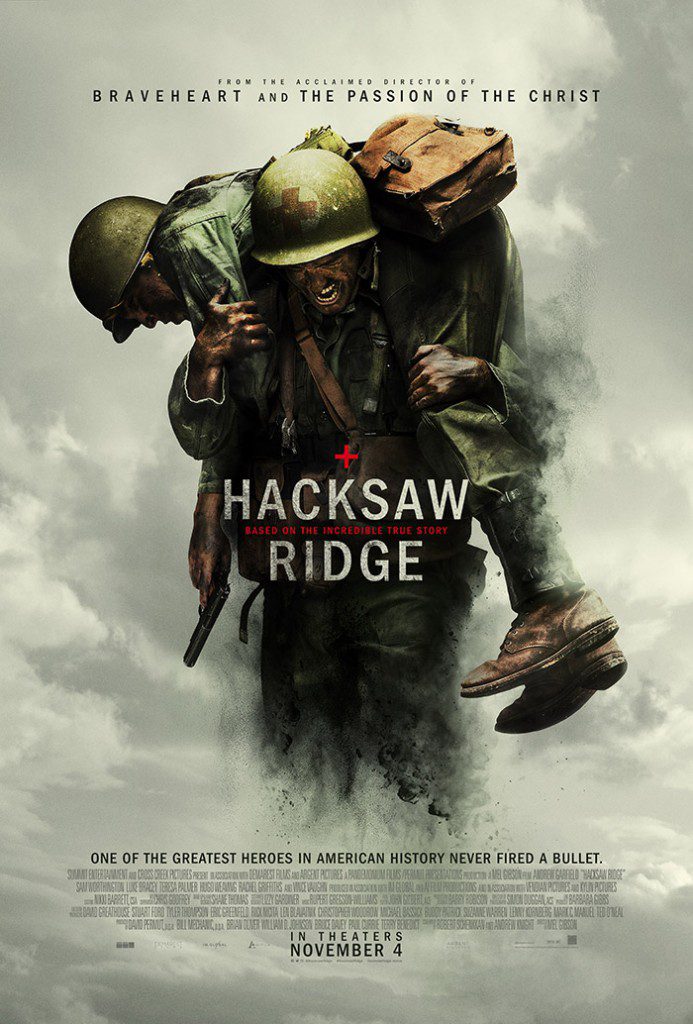
Do you think audiences are responding so well to this film because the story of forgiveness and peace in the middle of war are such relevant topics for the world today?
I think that’s part of it. I think Desmond’s story is timeless and relevant. It could have been relevant a thousand years ago. It could be relevant a thousand years from now. The reason it’s timeless is it’s always a good time and we always admire and are inspired by people who have a deep conviction of their beliefs, especially from a faith-based perspective, and will stand up when it’s time to be counted. Not because they’re steeped in some sort of dogma but because they know that it’s the right thing to do. They’re basing that right thing to do on their faith in a personal relationship with God. They put that faith in practice, which means you have to have trust in God. The second part of that equation is, and I think this is a big reason people love Desmond’s story is he turned the other cheek and he saved the lives of the men who had been abusing him. He didn’t hold it against them. Even after, he didn’t go to them and say, “You should have done this.” There was no backtalk on any of that. There was no condescending, judgmental attitude coming from him, the Christian. He accepted them and he accepted the fact that it was a huge misunderstanding because they didn’t understand who he was and what he was about. I think that’s what resonates with people. I wish I could do that. I want to believe I could do that, but would I? People walk away and say that, “Wow, that guy was a very special human being.”
Jesus modeled this in His own life and yet we read that and sometimes dismiss it as “He was the Son of God and I can’t compare to that.” But here’s a guy who actually lived that out and showed what it meant to live that out in the harshest of times. It was living out his faith and costing him so much personally.
That’s exactly right. He personified the definition of being a Christian and what that means is that sometimes we get a little uncomfortable. Being a Christian, we’re supposed to be Christ-like. We get uncomfortable with that, but the fact of that matter is that’s what’s we’re supposed to be doing. That’s what he did, and that’s what we should all aspire to and be. I think this story is very, very important for the faith-based community, because it should inspire us. It should cause to think and say, “I really need to look at myself and take every opportunity to be Christ-like.”


